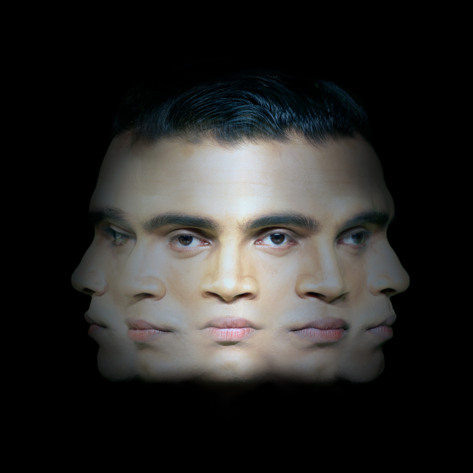truth.lie.lie - 13.09.19
Date: 13th September 2019For his sixth solo exhibition at Danielle Arnaud gallery, David Cotterrell presents a selection of recent and new works considering the mediation of evidence. Installations devised in eclectic contexts in collaboration with artists, actors and news agencies, are brought together within one exhibition to consider common threads of media scepticism, narrative betrayal and structural prejudice.
At a time of deep uncertainty and eroded confidence in local and global politics, Cotterrell has continued his long-term collaboration with Sri Lankan playwright, Ruwanthie de Chickera to create a range of speculative investigations into the mediation of truth.
Private view:
Friday 13 September 6 - 9pm
Location:
Danielle Arnaud gallery, 123 Kennington Road, London SE11 6SF.
Exhibition continues: 14 September - 12 October
(Thursday, Friday & Saturday 2-6pm or by appt.)
About the works:
Mirror IV: Legacy (2018) explores the dynamics of inherited memories of violence through the performances of six young Rwandan actors who belong to the post-Genocide generation. Three of the six actors are told that their character’s father was a victim of the Genocide. The remaining three actors are told that their character’s father was a perpetrator. They were not aware what the other actors had been told. When watching these performances, we question if it is possible to distinguish between the actors playing the children of victims and the children of perpetrators, in turn raising questions of memory, empathy and intergenerational storytelling.
Reverse Images : Brexit (2019) considers the evolving meaning of evidence. The installation involves the presentation of one of Getty Images’ most syndicated images of the polarising referendum campaign - the image of Boris Johnson speaking in front of his pledge, promise or aspiration to return £350M per week from the EU to the NHS. The exhibit features extracts from over 100 articles that claimed the same image as their evidence for diverse and divergent editorial comment. The continuous referencing and recontextualization of this image has reflected the anguish and anger of a contemporary struggle for truth. The exhibition provides an audio snapshot of a Machiavellian narrative of manipulation and populism.
Shock and Awe (2019) is a short video work constructed from the collated documentation of a seminal media(ted) event. The breathless documentation of the long-anticipated commencement of the second Gulf War was broadcast globally on March 20-23, 2003. The narrative overlay and ident branding of this display of ‘neo-con’ power varied from network to network, but there was a strange limitation of view demonstrated as the majority of networks carried footage recorded from the roof of the Al-Rasheed Hotel in Baghdad. Flocking to recreate the CNN exclusive views of the 1991 bombardment, global outlets found themselves mirroring each other with near identical claims to unique testimonies. The abstraction of the horror of the bombardment was made palatable for live-viewing international voyeurs through the abstraction of its illumination of the night sky.
Mirror V: Translation (2019) is the latest of the Mirror installations (2015-present). It offers an experiment in partial translation. Two Sinhala monologues, filmed in Sri Lanka, are presented consecutively in the gallery. The ambient noise of Colombo and the original voices of the actors is audible. Orientated around the space, ultrasonic speakers create zones of sound, which present a translated narrative to the gallery audience. Three similar but distinct translations are available to recontextualise the direct-to-camera monologues. Through, error, omission and interpretation, the installation focussed on the subjectivity of translation, the power to objectify and our ability to perceive threat.
Blue/Green (2019) is a modest experiment with contradictory framing of identity. Artists and friends from Palestine and Israel have volunteered their travel documents and identity cards to form part of a compromised transitionary format. New lenticular identity cards have been produced, which allow the access and agency of the subject to shift with the angle of view. The subtle changes of serial number, symbolism and colour offer a modest aesthetic study of profoundly impactful institutional shifts in enfranchisement and trust. Musing on the enduring societal acceptance of the abstraction of invented categorisation, value and solidarity, this work forms part of a series of transitionary domestic and international documents of power.
Further Information: danielle@daniellearnaud.com

